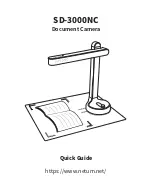
71
LCD panel
Viewfinder
—
u
blinks
⁄
appears
⁄
appears
¤
appears
¤
appears
‚
blinks
‚
blinks
—
q
blinks
q
blinks for
—
3 sec. after
flash
‹
and
‹
and
q
blink
q
blink
Cause
• Autofocus is not
possible.
• Overexposure
possible.
• Underexposure
possible.
• Shutter speed is
set to Long Time
Exposure in
S
mode.
• Speedlight
recommended.
• Flash has fired at
full output and
underexposure
may have
occurred.
• In exposure mode
other than
A
or
M
,
flash mode
selector on the
optional
Speedlight is not
set to
¸
.
Page
37
41
43
28
41
43
28
41
28
61
63
Remedy
• Focus manually.
• In
S
mode, select
faster shutter
speed.
• In
A
mode, select
smaller aperture
(larger f-number).
• In other exposure
modes, use ND
filter.
• In
S
mode, select
slower shutter
speed.
• In
A
mode, select
larger aperture
(smaller f-number).
• In other exposure
modes, use Speedlight.
• Set the shutter
speed or switch to
M
mode.
• Use built-in
Speedlight.
• Shoot again after
confirming focus
distance, aperture
or flash shooting
distance range.
• Set the
Speedlight’s flash
mode selector to
¸
or switch
exposure mode to
A
or
M
.
70
Troubleshooting
LCD panel
Viewfinder
‡
blinks
‡
blinks
O
appears
—
O
blinks
—
°
blinks
°
blinks
(
°
appears
(
°
appears
without blinking
without blinking
in M mode)
in M mode)
‹
and
T
blink
and
fl
appears
‹
blinks
T
blinks
and
fl
appears
—
T
blinks
—
‹
and
T
blink
—
Cause
• CPU Nikkor lens
(other than G-type) is
not set to its
minimum aperture.
• Batteries are
nearing
exhaustion.
• Batteries are just
about exhausted.
• Non-CPU lens is
attached or lens is
not attached.
• Film is not
correctly
positioned.
• Non-DX-coded
film is loaded.
• An exposed film
remains in the film
cartridge chamber.
• Battery power is
low or temperature
is too low to
rewind film.
Page
16
15
15
16
19
19
27
35
Remedy
• Set lens to
minimum aperture.
• Have fresh ones
ready.
• Turn the power off
and replace
batteries with new
ones.
• Attach CPU lens
(except IX-Nikkor)
correctly. (Or set
the exposure
mode to Manual.)
• Reload film.
• Load DX-coded
film.
• Remove film
cartridge.
• Turn the power off
and replace
batteries with new
ones. Then, turn
the power on and
rewind film again.
In certain cases, due to static electricity or poorly loaded batteries, the F60/F60
D
camera’s microcomputer may turn the camera off, even with fresh properly
installed batteries. For the same reason, film may not advance properly. In each
of these cases, to resume operation, simply turn the power off, then turn it on
again, or remove batteries and install them again.
F60 (E) 02.12.27 5:34 PM Page 70
WWW.LENSINC.NET






































